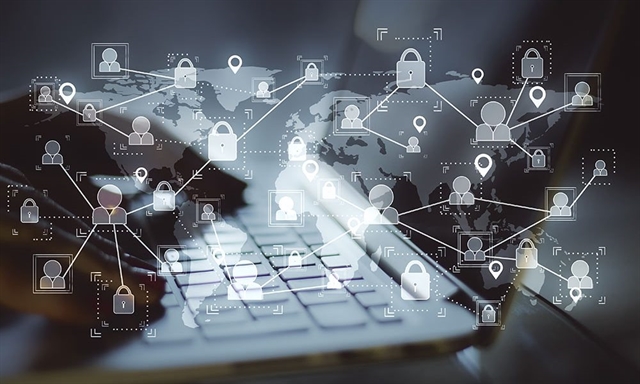 Economy
Economy


|
| Brute-force attacks targeting remote desktop protocols have increased remarkably in Việt Nam in the first half of 2021. — Photo courtesy of Kaspersky |
HCM CITY — A total of 47,602,256 brute-force attacks targeting remote desktop protocol were detected and blocked by Kaspersky in the first half of the year.
They accounted for 42 per cent of all attempted attacks against users of Kaspersky solutions in Southeast Asia with Microsoft RDPs installed on their desktop.
Though brute-force attack is an old method, it’s still effective and popular with hackers. By targeting a device running Windows and using RDP and trying to find the correct RDP login or password pair, hackers can gain access to the computer and profit from ads, collect activity data, steal personal data and valuables, spread malware to cause disruptions, hijack systems for malicious activity, and ruin websites’ reputation.
The number also represents an increase of 37 per cent year-on-year in attempted attacks in Việt Nam.
Explaining the reason for the increase in brute-force attacks, experts said the first half of 2021 was a period when businesses in Việt Nam promoted information technology and digital transformation.
Besides, the COVID-19 pandemic created an opportunity for cybercriminals to take advantage of companies’ hurried transition to work from home and the poor configuration of RDP servers.
Chris Connell, Kaspersky managing director for the Asia Pacific, said: “This health crisis has clearly expedited digital transformation and the merging of our professional and personal lives.
“Employees are now actively leading the way in accepting changes in pursuit of greater freedom and flexibility, using technology to own a new future.
“Companies must now adapt and restructure the modern workplace to make it more productive, sustainable and, most importantly, secure.”
According to Kaspersky employers and businesses need to take all possible protective measures, and companies need to closely monitor programmes in use and update them on all corporate devices in a timely manner.
But it has admitted it is not an easy task because of the hasty transition to remote working, which has forced many companies to allow employees to work with or connect to company resources from home.
Companies need to provide training in basic cyber hygiene to employees, use strong, complex and different passwords to access various company resources, use multi-factor authentication or two-factor authentication, especially when accessing financial information or logging into corporate networks.
Where possible, they need to use encryption on devices used for work purposes, enable access to RDP through a corporate VPN, always prepare for backup copies of critical data and use a reliable enterprise security solution with network threat protection. — VNS




